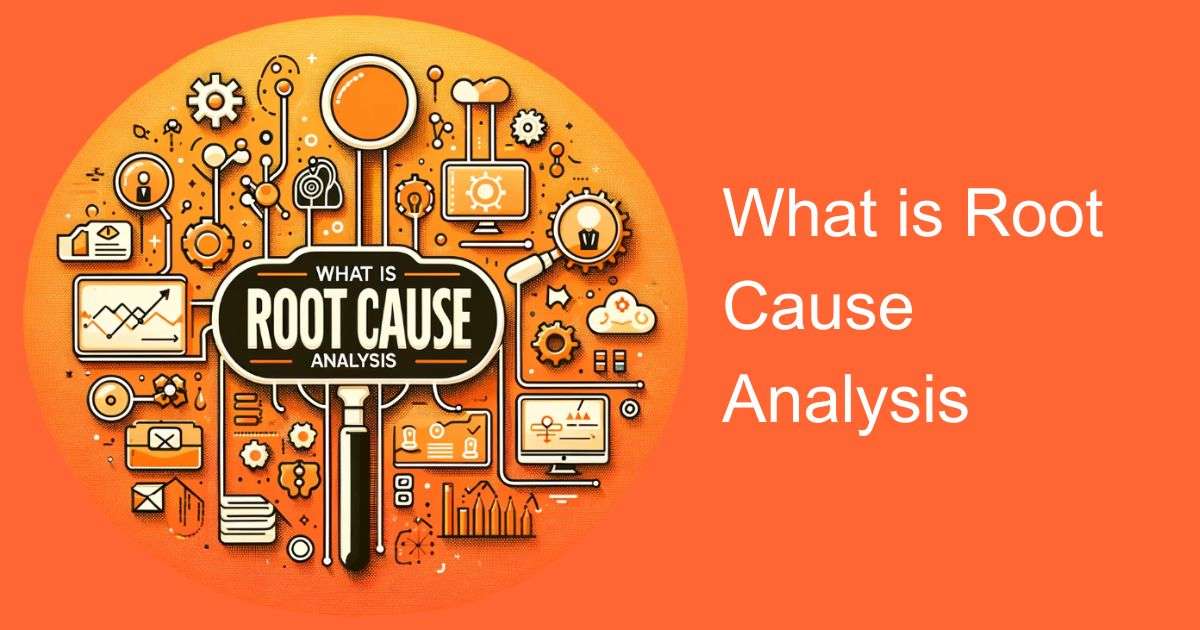Introduction
In the realm of problem-solving and process improvement, Root Cause Analysis (RCA) stands as a fundamental tool. It’s a systematic approach to identifying the underlying causes of issues, incidents, or problems within an organization. By addressing these root causes, rather than just their symptoms, RCA empowers businesses to make lasting improvements. In this comprehensive guide, we will delve deep into the what is Root Cause Analysis, covering its principles, methodologies, and its pivotal role in driving continuous improvement.
The Basics of Root Cause Analysis
1 What is Root Cause Analysis?
Root Cause Analysis is a structured method used to identify the underlying reasons behind a problem or an undesirable event. It goes beyond addressing immediate symptoms and seeks to uncover the root causes that, if addressed, can prevent the issue from recurring.
2 Why is Root Cause Analysis Important?
- Preventing Recurrence: By addressing root causes, organizations can prevent similar issues from happening in the future.
- Continuous Improvement: RCA is a key component of a culture of continuous improvement.
- Informed Decision-Making: It provides data-driven insights to make informed decisions.
Root Cause Analysis Methodologies
There are various methodologies for conducting Root Cause Analysis. Let’s explore some of the most widely used ones:
1 Whys
- A simple but effective technique that involves repeatedly asking “Why?” to dig deeper into the causes of a problem.
- Helps identify the root cause by unraveling layers of causality.
2 Fishbone Diagram (Ishikawa Diagram)
- A visual tool that organizes potential causes of a problem into categories.
- Categories often include people, process, equipment, materials, and environment.
3 Fault Tree Analysis
- Utilizes a graphical approach to identify all possible causes of a specific event.
- Particularly useful for complex and critical events.
4 Failure Mode and Effects Analysis (FMEA)
- A proactive approach to RCA that assesses potential failure modes before they occur.
- Prioritizes risks based on severity, occurrence, and detectability.
The Root Cause Analysis Process
Understanding the RCA process is crucial for effective problem-solving:
1 Define the Problem
- Clearly articulate the problem or incident that needs analysis.
- Establish the scope of the investigation.
2 Data Collection
- Gather relevant data, including facts, figures, and historical information.
- Ensure data accuracy and completeness.
3 Root Cause Identification
- Apply the chosen RCA methodology to identify potential root causes.
- Prioritize these causes based on their significance.
4 Root Cause Verification
- Validate the identified root causes through evidence and data.
- Eliminate assumptions and biases.
5 Action Plan Development
- Develop a corrective action plan to address the root causes.
- Include responsible parties, timelines, and resources.
6 Implementation and Monitoring
- Execute the action plan and monitor its progress.
- Adjust the plan as needed.
Challenges and Solutions
Like any analytical process, Root Cause Analysis comes with its share of challenges:
1 Bias and Assumptions
- Solution: Encourage a culture of open and unbiased analysis. Seek diverse perspectives.
2 Insufficient Data
- Solution: Improve data collection processes and invest in data-gathering tools.
3 Resistance to Change
- Solution: Communicate the benefits of RCA-driven improvements and involve stakeholders in the process.
Best Practices for RCA
To conclude, here are some best practices for effective Root Cause Analysis:
1 Cross-functional Teams
- Involve individuals from various departments to bring diverse viewpoints.
2 Continuous Training
- Ensure that employees are trained in RCA methodologies and techniques.
3 Documentation
- Maintain thorough documentation of the RCA process, findings, and actions taken.
4 Feedback Loop
- Use lessons learned from RCA to improve processes and prevent future issues.
5 Management Support
- Secure management buy-in and support for RCA initiatives.
Conclusion
Root Cause Analysis is a powerful tool that enables organizations to tackle problems at their core, driving continuous improvement and preventing recurrent issues. By embracing the principles and methodologies of RCA, businesses can create a culture of problem-solving that fosters resilience and success in an ever-evolving world.








